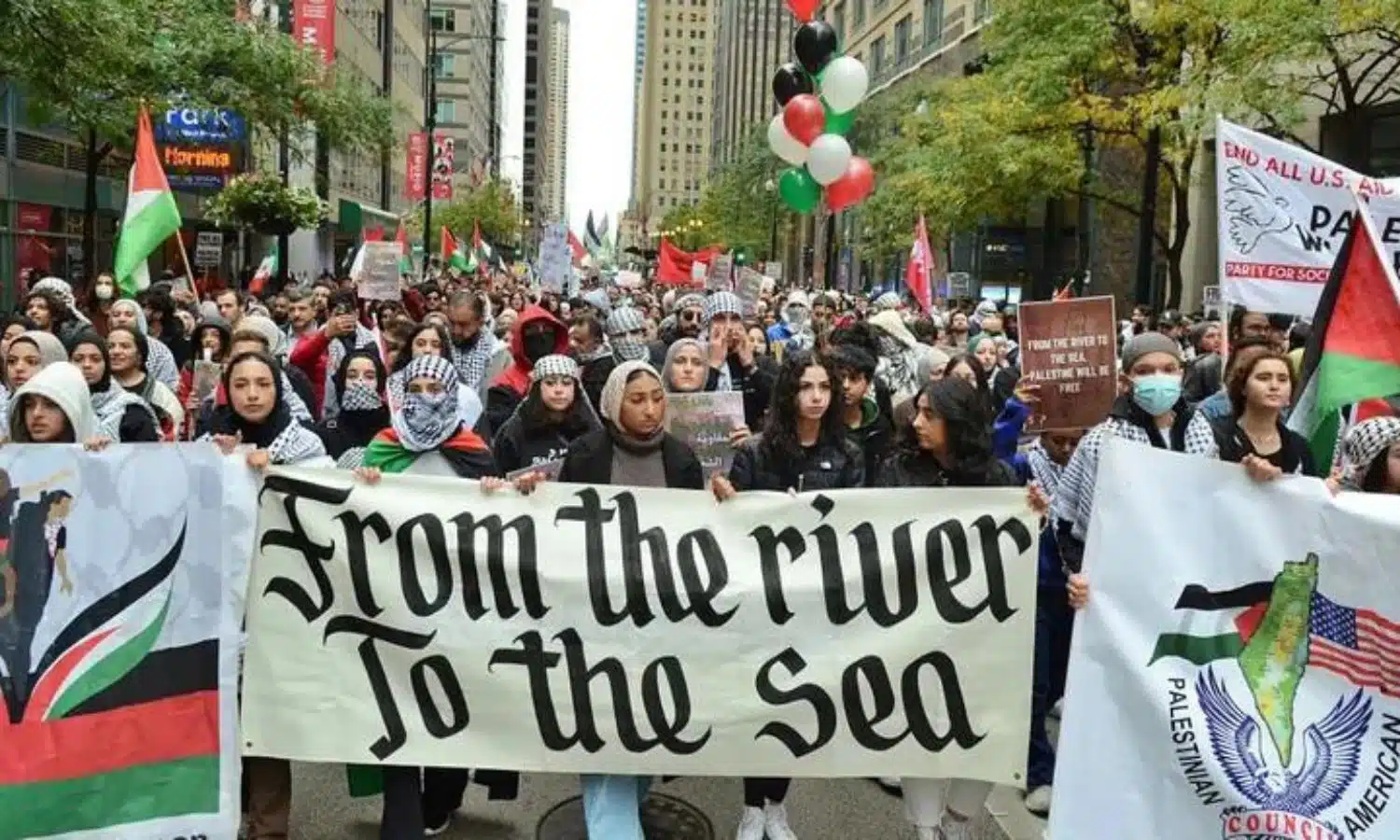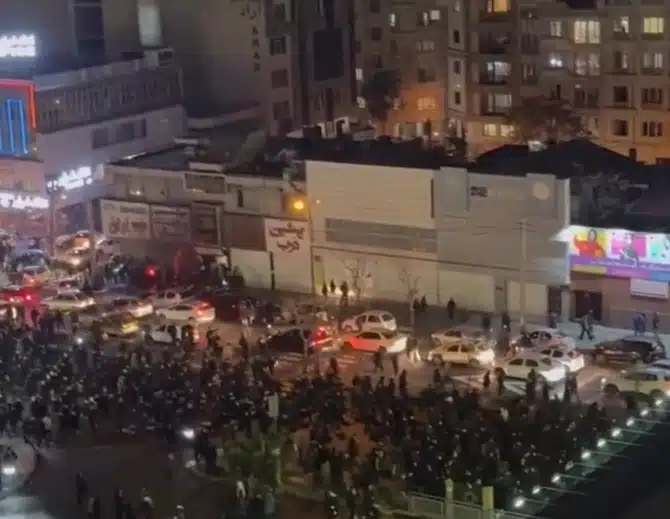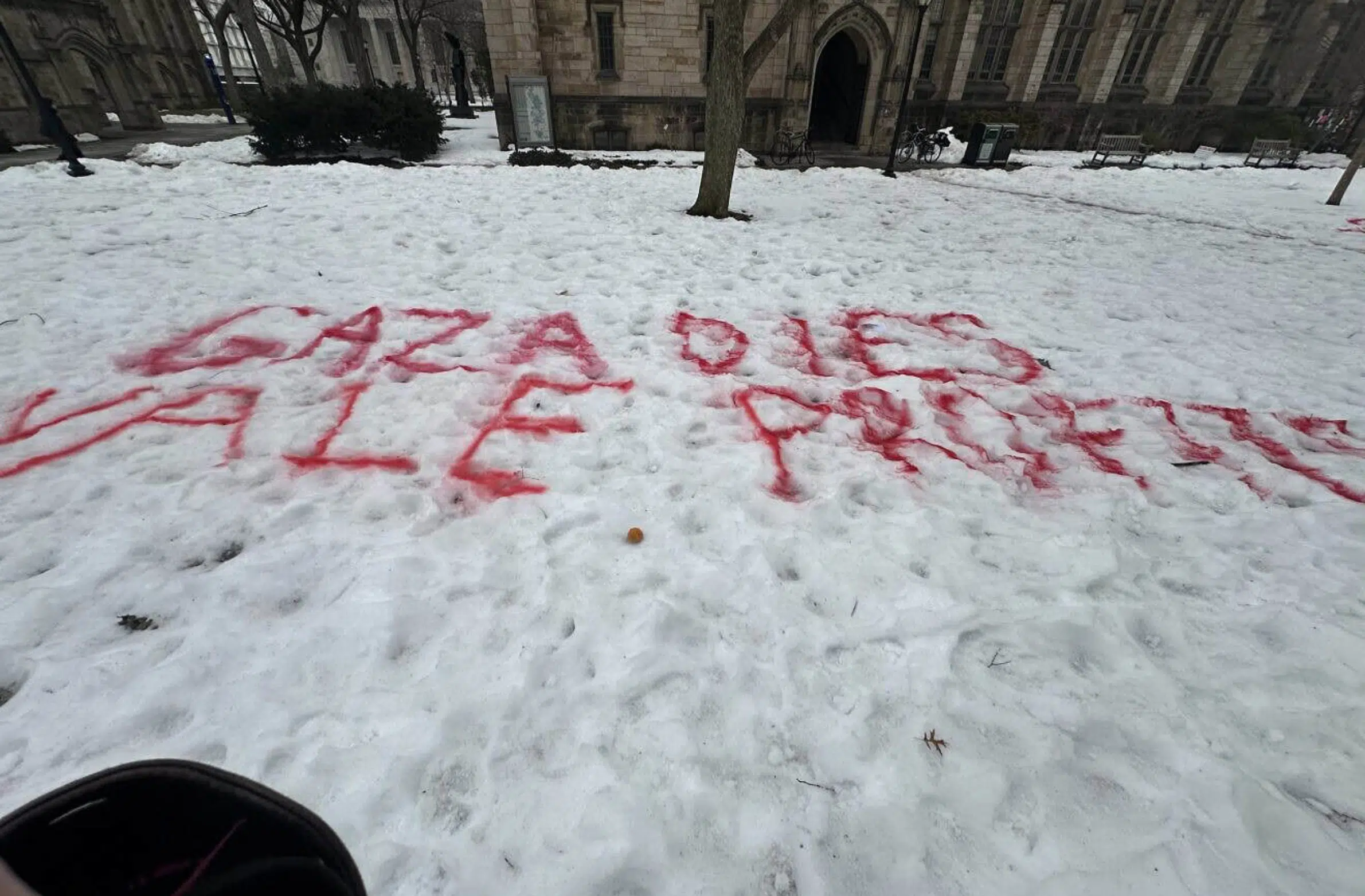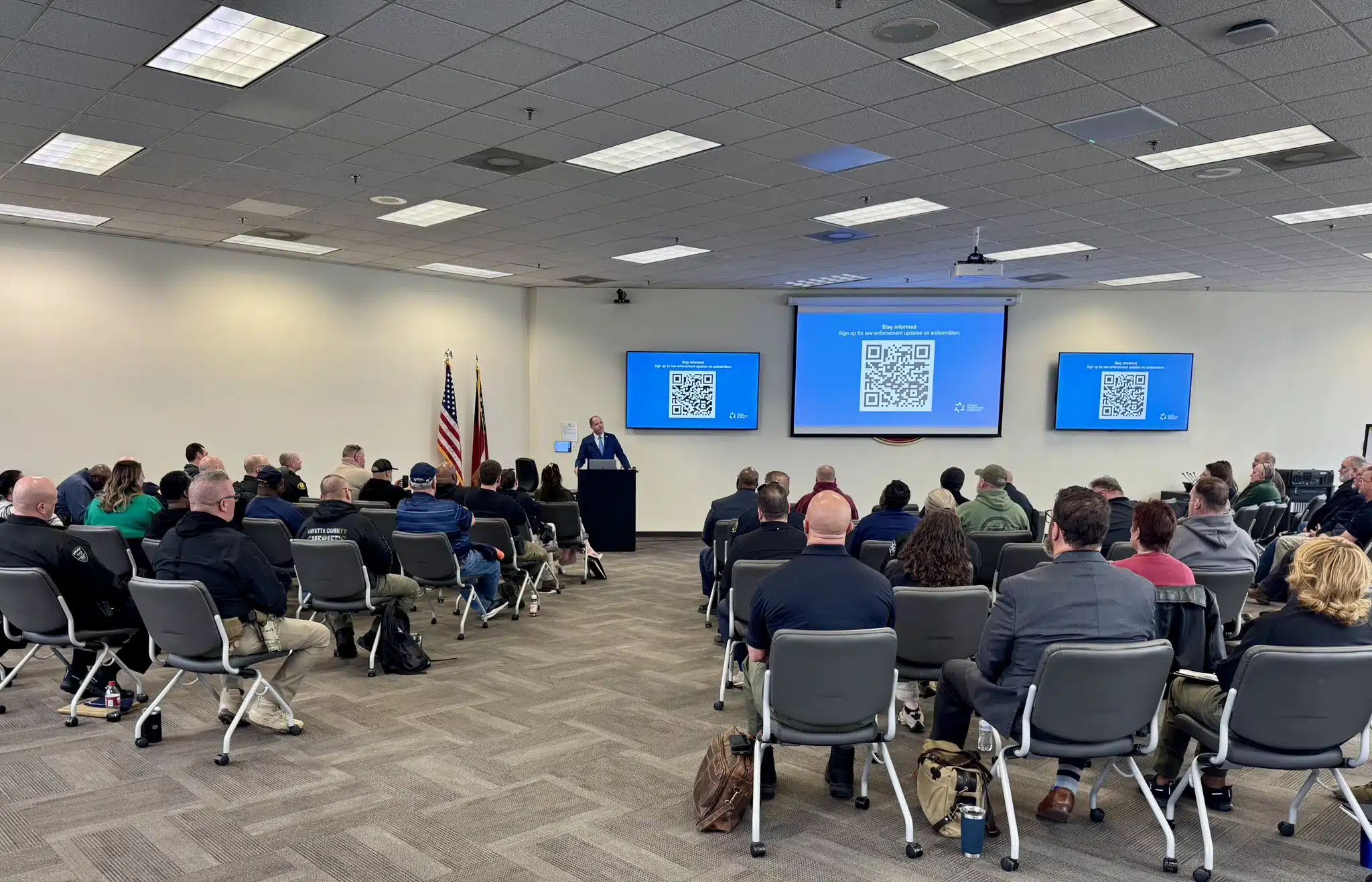|
Getting your Trinity Audio player ready...
|
The Combat Antisemitism Movement (CAM) has submitted to Meta’s independent Oversight Board a document detailing why the slogan “From the River to the Sea, Palestine Will Be Free” is a violent call to genocide that should be banned from the social media platform.
Details of the Oversight Board cases related to this slogan can be read HERE.
The full text of the CAM document follows:
This white paper analyzes the slogan “From the River to the Sea, Palestine Will Be Free,” its historical and contemporary contexts, and why it is perceived as a call to genocidal violence against the State of Israel. This slogan suggests the complete liberation of the land delineated under the borders of the historic British Mandate for Palestine, covering the territory from the Jordan River to the Mediterranean Sea, which encompasses the entire State of Israel. We will explore the implications of this slogan, its impact on the Israeli-Palestinian conflict, and its reception by different communities and international bodies.
Introduction
The phrase “From the River to the Sea” refers geographically to the land between the Jordan River and the Mediterranean Sea, encompassing the modern-day State of Israel, the West Bank, and Gaza Strip. Historically, this slogan has been associated with groups that oppose the existence of Israel as a Jewish state in any borders, such as Hamas, Hezbollah, and Palestinian Islamic Jihad. Since their inception, these terror organizations have advocated for the obliteration of the world’s only Jewish state as a precondition to the establishment of a Palestinian state. This position is clearly outlined in the 1988 Hamas Charter, in which Hamas — a U.S.-designated Foreign Terrorist Organization — states categorically that “In face of the Jews’ usurpation of Palestine, it is compulsory that the banner of Jihad be raised.”
Historical Context
The core of the antisemitic interpretation stems from the implication that the slogan calls for the elimination of the State of Israel. The phrase suggests a vision where Jews would either be expelled from the territory or become an ethnic minority in an Arab-majority state. This scenario raises concerns that Jews would be subjected to institutionalized antisemitism by Palestinian leaders who have historically supported, glorified, and funded acts of terror against Israeli civilians. Furthermore, the expulsion of more than 850,000 Jews from Arab lands across the Middle East and North Africa following the establishment of the State of Israel is a testament to the fate that would await a Jewish minority population, and in this case, the world’s largest Jewish community, in an Arab majority state.
Antisemitism has historically manifested in efforts to deny Jews a place in society, including systematic discrimination, expulsions, and genocides. The modern State of Israel represents a successful liberation movement that has restored Jewish sovereignty to its ancestral homeland and served as a response to centuries of persecution. Therefore, a slogan advocating for the dissolution of Israel, a United Nations member state, is seen as a continuation of these historic efforts to marginalize and disenfranchise Jews. By framing the issue in terms of geographic eradication rather than coexistence, the slogan echoes these past injustices.
Interpretation and Implications
The geographical reference “from the river to the sea” encompasses all the land between the Jordan River and the Mediterranean Sea, including all parts of Israel’s internationally-recognized borders. In this exact land, more than nine million Israelis — Jews, Muslims,
Christians, and others — currently live.
While some proponents of the slogan argue that it simply advocates for Palestinian self-determination and an end to the Israeli “occupation” of the West Bank, the phrase’s broader and more militant associations cannot be ignored. The slogan has been chanted at rallies and
events where anti-Israel sentiments are high, often accompanied by classical antisemitism rhetoric, and expressions that deny Jewish ties to the land, praises Palestinian terrorism, and distorts the memory of the Holocaust.
By advocating for a free Palestine within these borders, the slogan implies the complete dissolution of Israel as a sovereign state. This interpretation is seen by many as a call for the eradication of the Jewish state and the displacement of its more than seven million Jewish citizens, or nearly half the global Jewish population. This call for genocide and ethnic cleansing, if implemented could be on a scale larger than the Holocaust. When connected to the October 7 massacre in which Palestinian terror factions actually carried out the aims of this slogan in its massacre of 1,200 innocent people, the call to commit a genocide has moved from hate speech to practical implementation. As since October 7 calls using the slogan “From the River to See Palestine will Be Free” are now seen as an attempt to implement the
slogan, support Hamas’ crimes against humanity, and eventually commit a full genocide against all those living between the river and the sea.
Political and Social Implications
The slogan is perceived by many as a call to violence for several reasons:
1. Elimination of the State of Israel: The explicit call for a free Palestine within these borders suggests the end of Israel’s existence. This is an existential threat to all Israelis and Jewish communities worldwide.
2. Displacement of Jewish Residents: The slogan implies that all current inhabitants who do not identify as Palestinian would be expelled, forced to leave, or murdered. This raises concerns about ethnic cleansing and forced displacement.
3. Historical Context of Violence: The groups and movements that have historically used this slogan, such as Hamas, have been involved in violent conflicts with Israel and against Israeli civilians. The slogan is thus associated with a history of terrorism and armed struggle against the Israeli state.
International Response
The international community is divided on the Israeli-Palestinian conflict. However, the slogan “From the River to the Sea, Palestine Will Be Free” is widely seen as problematic. Most countries and international organizations recognize Israel’s right to exist and advocate for a two-state solution, where both Israelis and Palestinians can live in peace within their own sovereign states.
Conclusion
The slogan “From the River to the Sea, Palestine Will Be Free” is a deeply controversial and polarizing phrase that contributed to hate speech, violence, and the mainstreaming of antisemitic ideas. While it represents the aspirations of some Palestinian groups, it is perceived by many as a call to violence against the State of Israel and its Jewish population. Understanding the historical and contemporary contexts of this slogan is crucial for comprehending its implications and the broader Israeli-Palestinian conflict.
Recommendations
To foster more constructive dialogue, and safe communities, CAM recommends:
— A Ban of the Phrase: We call on Meta to ban the use of this slogan as hate speech.
— Promote Peaceful Advocacy: Encourage the use of language that supports coexistence and mutual recognition rather than calls for the elimination of any state or people.
— Educate on Historical Contexts: Provide comprehensive education on the historical and contemporary contexts of the Israeli-Palestinian conflict to foster understanding and empathy on both sides.











